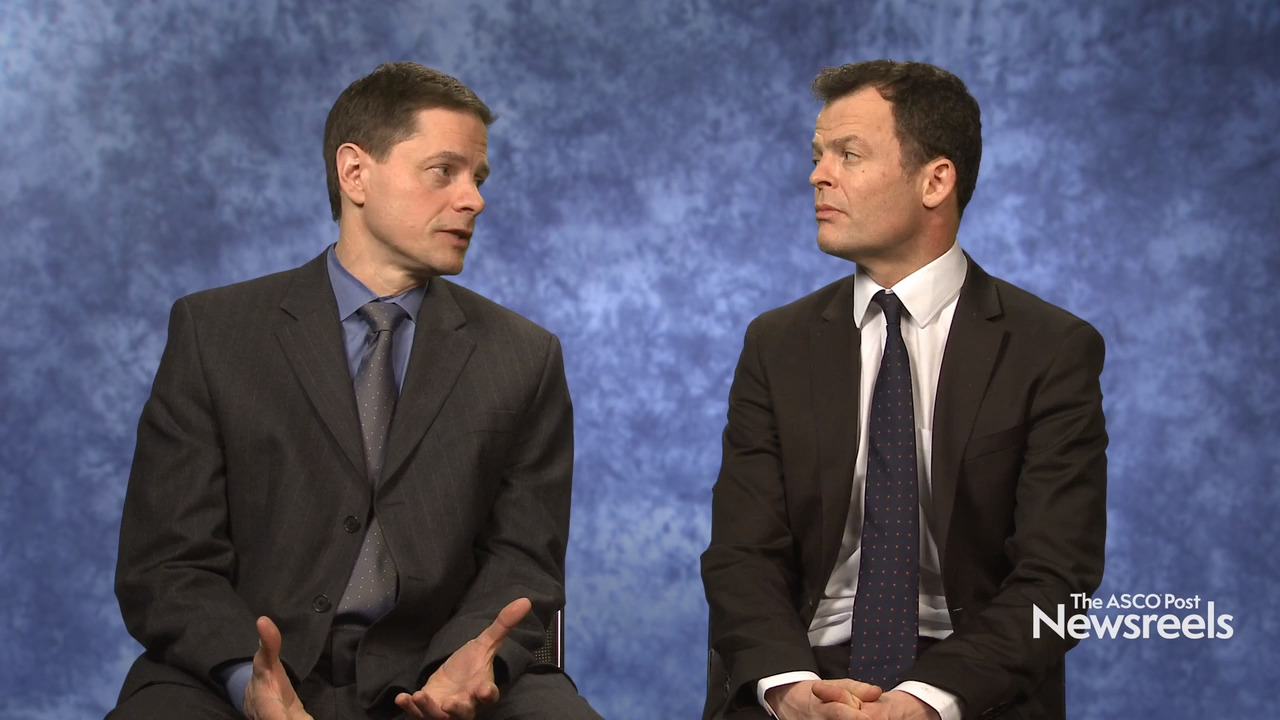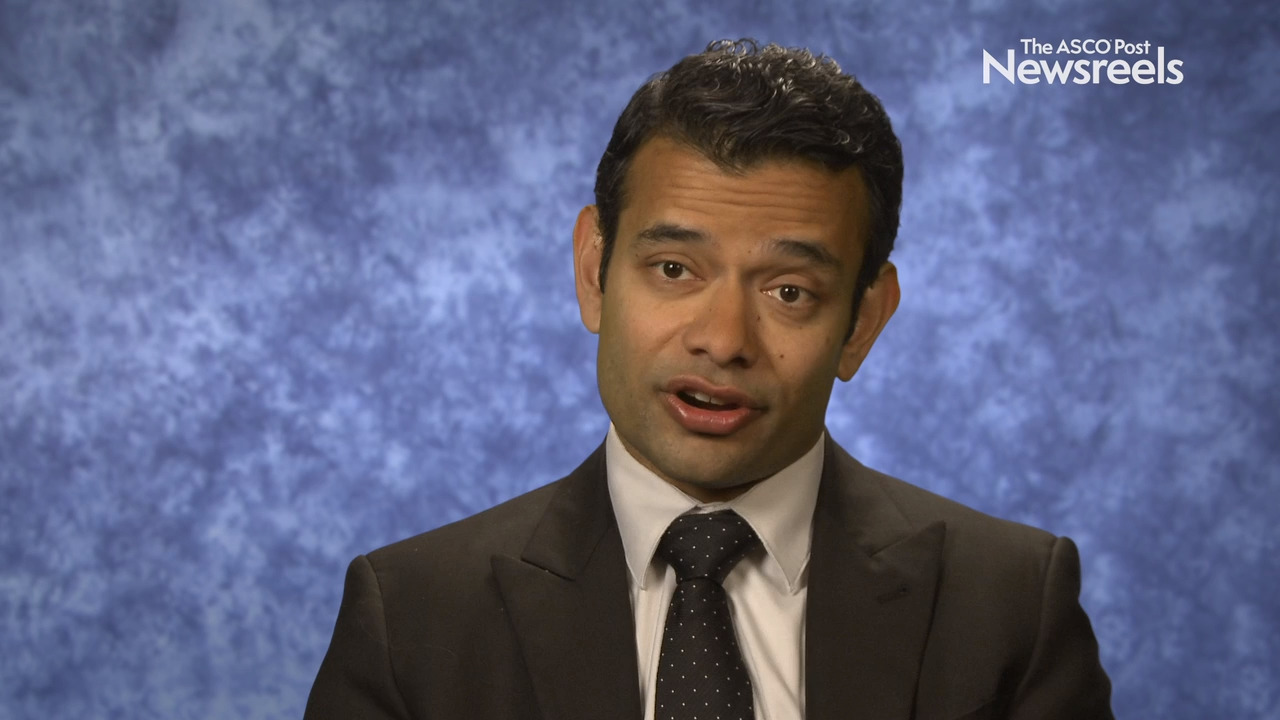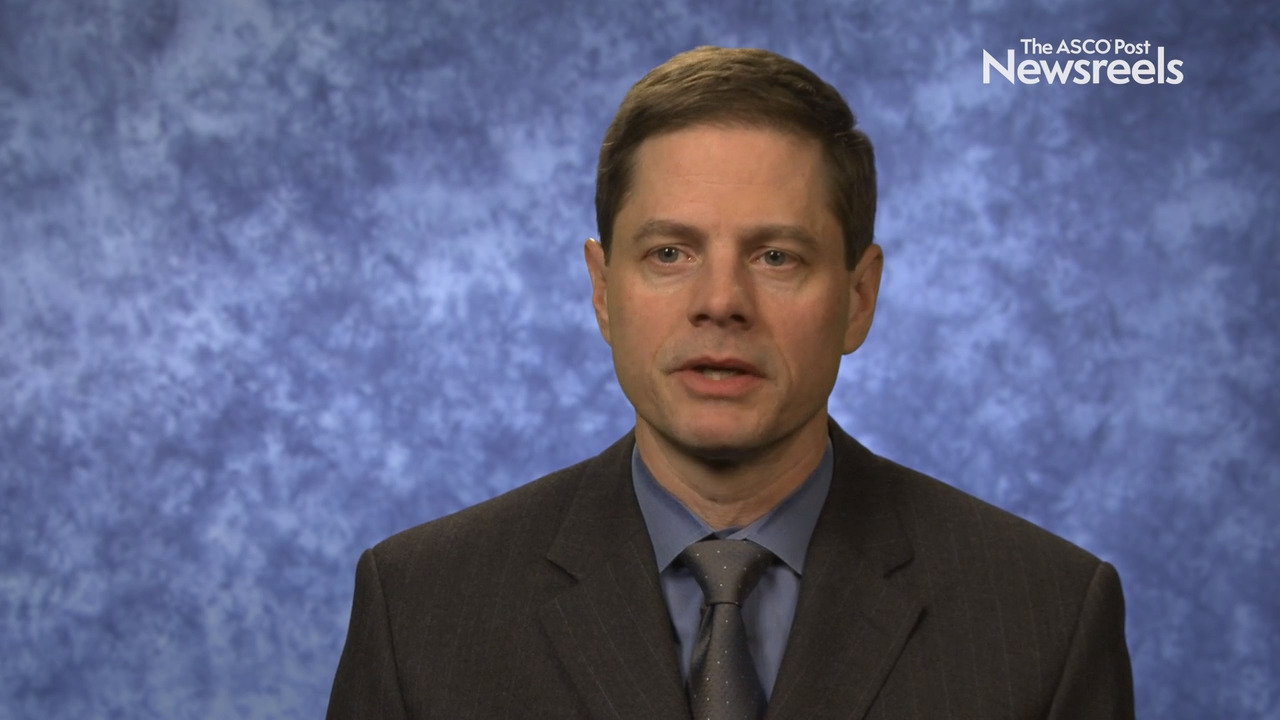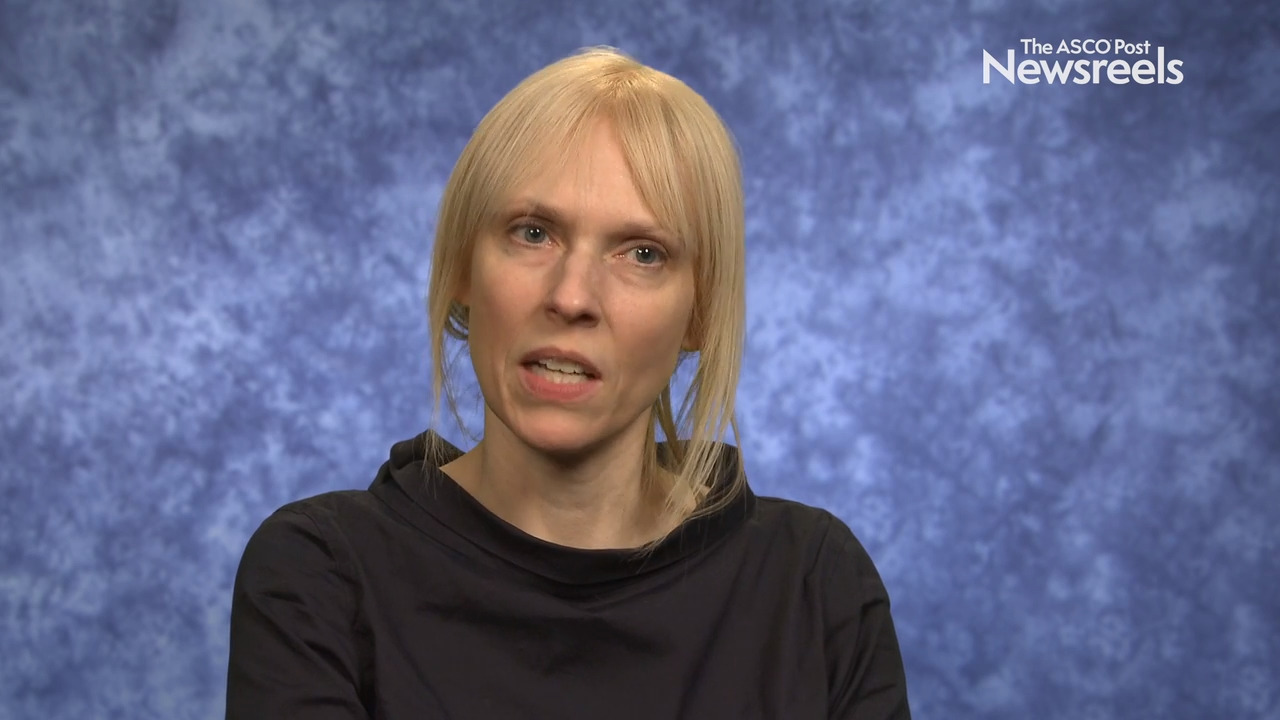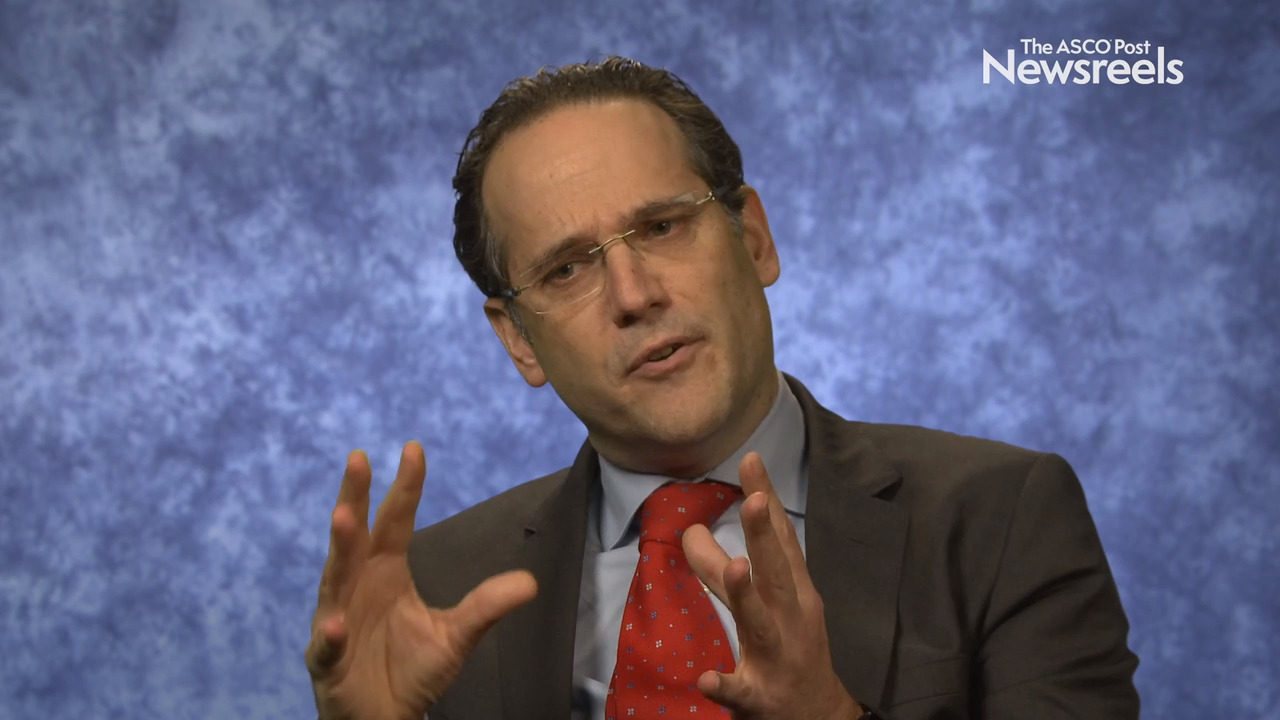Toni K. Choueiri, MD, on Renal Cell Carcinoma: Trial Results on Avelumab Plus Axitinib vs Sunitinib
2019 Genitourinary Cancers Symposium
Toni K. Choueiri, MD, of Dana-Farber Cancer Institute, discusses a subgroup analysis from the JAVELIN Renal 101 study on outcomes for avelumab plus axitinib vs sunitinib in advanced renal cell carcinoma (Abstract 544).
Brian I. Rini, MD, of the Cleveland Clinic Taussig Cancer Institute, and Thomas Powles, MD, PhD, of Queen Mary University of London, discuss their study findings on pembrolizumab plus axitinib vs sunitinib as first-line therapy for locally advanced or metastatic renal cell carcinoma (Abstract 543).
Sumanta K. Pal, MD, of City of Hope, who served as a Co-Executive Editor of the 2019 publication Clinical Cancer Advances, discusses progress made during the past year in research and policy. The report was compiled with a team of experts in oncology subspecialties, cancer prevention, quality care, health disparities, and tumor biology.
Brian I. Rini, MD, of the Cleveland Clinic Taussig Cancer Institute, discusses current models used to estimate the risk of recurrence as well as genomic data that could help pinpoint individual tumor biology.
Silke Gillessen, MD, of Cantonal Hospital St. Gallen, discusses data from a phase III study on the incidence of hypocalcemia in patients with castration-resistant prostate cancer treated with denosumab. The trial was designed to assess prevention of symptomatic skeletal events with denosumab administered every 4 weeks vs every 12 weeks (Abstract 139).
Ignacio Duran, MD, PhD, of the Hospital Universitario Marqués de Valdecilla, discusses an overall survival analysis of the phase III METEOR trial of cabozantinib vs everolimus in advanced renal cell carcinoma (Abstract 550).
